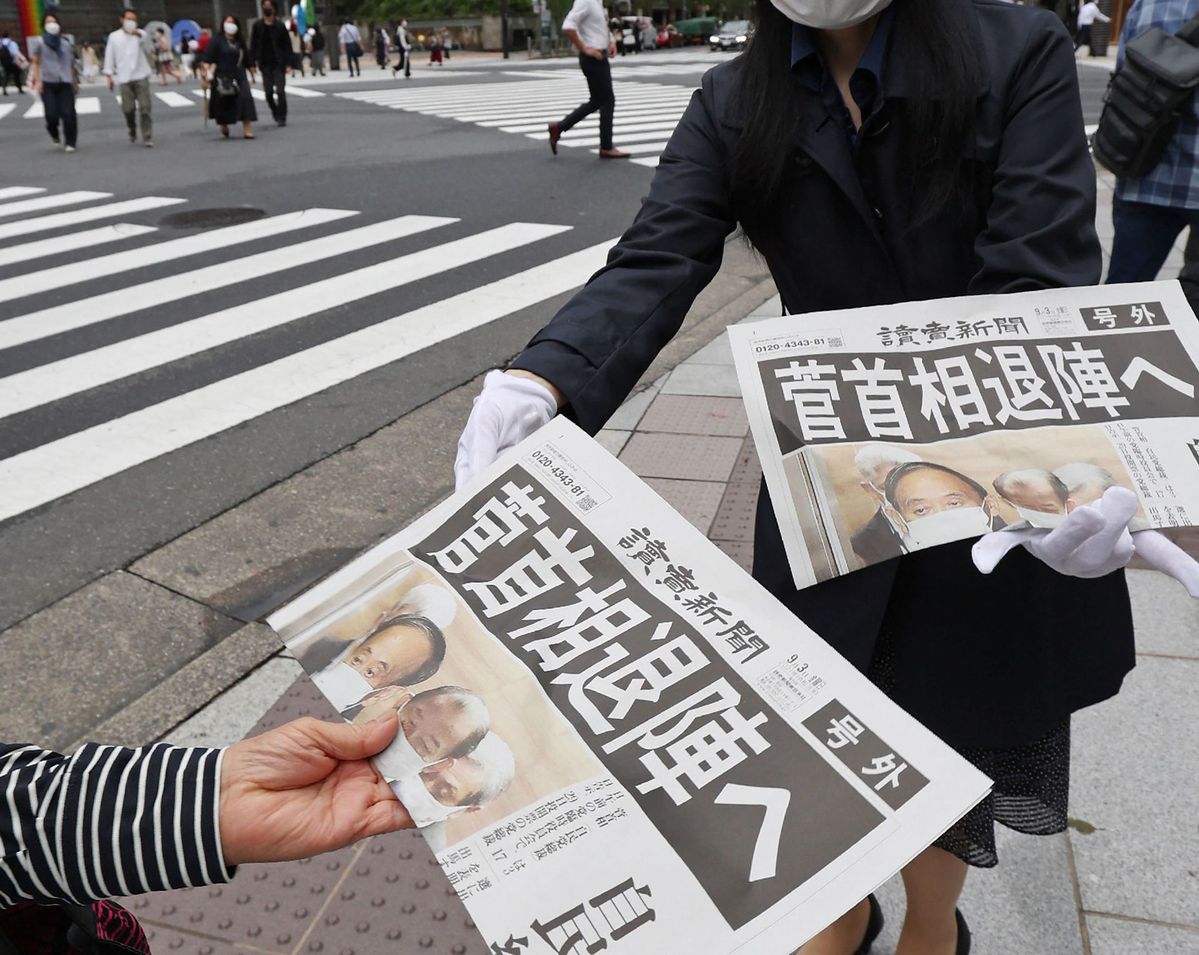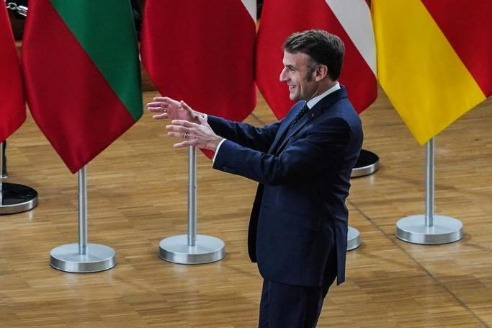'Revolving door' era may be back for Japan
Outgoing PM's problems stemmed from handling pandemic, experts say


Japan's "revolving door" era of political leaders may be back following Prime Minister Yoshihide Suga's announcement on Friday that he will step down after a year in the job.
From 2006 to 2012, Japan changed prime ministers nearly every year, with the lengthy tenure of Shinzo Abe from 2012 to 2020 breaking the trend.
Several candidates are vying to succeed Suga as the leader of the ruling Liberal Democratic Party and take over as prime minister, with the vote scheduled for Sept 29.
Voters strongly support 58-year-old Taro Kono, the minister in charge of fighting COVID-19, becoming the next prime minister, a Kyodo News poll released on Sunday indicated.
Kono gained 31.9 percent of support from respondents in a nationwide telephone survey conducted over the weekend, ahead of former defense minister Shigeru Ishiba, with 26.6 percent, and former foreign minister Fumio Kishida, with 18.8 percent.
Kishida and former internal affairs minister Sanae Takaichi have already announced they will run for the LDP leadership, with the latter having the backing of Abe. Takaichi is hoping to become Japan's first female prime minister.
Kono said he will announce this week whether he will join the race, while Ishiba is monitoring moves within the LDP and weighing his next step.
The opinion polls, however, do not necessarily mean that there is a clear front-runner in the race.
A nationwide survey conducted by Kyodo News last month showed the approval rating for Suga's Cabinet at 31.8 percent, down from the 66.4 percent rating he enjoyed after taking office in September when his popularity was based on the image of a self-made man who was the son of a farmer. Suga is a protege of Abe.
Suga's standing with voters fell due mainly to his government's response to the COVID-19 pandemic, analysts said. The vaccine rollout in Japan has been perceived as haphazard and slow. Fears that COVID-19 cases would spike during and following the Olympics were largely realized, as infections and hospitalizations skyrocketed across Japan, with no apparent government plans to deal with the situation.
Several younger LDP lawmakers had also voiced their concerns that the party could not win the next lower house election, which will take place by Nov 28 at the latest, with Suga at the helm.
Suga's leadership style also lost him support. He took a top-down decision-making approach to policy issues without weighing the opinions of a wide range of advisers.
He further alienated LDP members when reports emerged that he was planning to dissolve the lower house in a maneuver that was seen as a way for him to face the voters before the key party vote. He later denied he had such a plan.
Suga, supported by neither the young members nor factions in the LDP, had no choice but to step down.
The Mainichi Shimbun's editorial said Suga will leave a political vacuum during the coronavirus crisis. "The LDP must quickly have its presidential election. What will be sought… is reflection and review of the Suga administration, which acted as inheritor of the preceding Abe administration," the newspaper's editorial said.
The Asahi Shimbun said Suga deserves to be criticized for abandoning his responsibility to protect the lives and livelihoods of people at a time of surging COVID-19 cases.
Even though the LDP's popularity is waning, political analysts believe that the ruling coalition will maintain its majority with a new leader, though the party will likely lose a fair number of seats.
However, with Suga's departure and the uncertainties created by the pandemic, the turbulence of old could return.
"It's certainly a risk," said Corey Wallace, an assistant professor at Kanagawa University in the city of Yokohama who focuses on Japanese politics and international relations.
"I completely can imagine a situation where we do go through a few years (of revolving prime ministers) as things like the pandemic continue to throw up surprises," he told Agence France-Presse.
But he pointed out that Suga came to power in exceptional circumstances, with the pandemic raging and without membership in one of the party's power base factions.
Wallace said he was "a little bit more bullish than others" on the subject and that a stable leader could emerge particularly once the pandemic starts to recede.
Mikitaka Masuyama, a politics professor at the National Graduate Institute for Policy Studies, said, "What was unfortunate for him was that he had to deal with COVID-19."
































